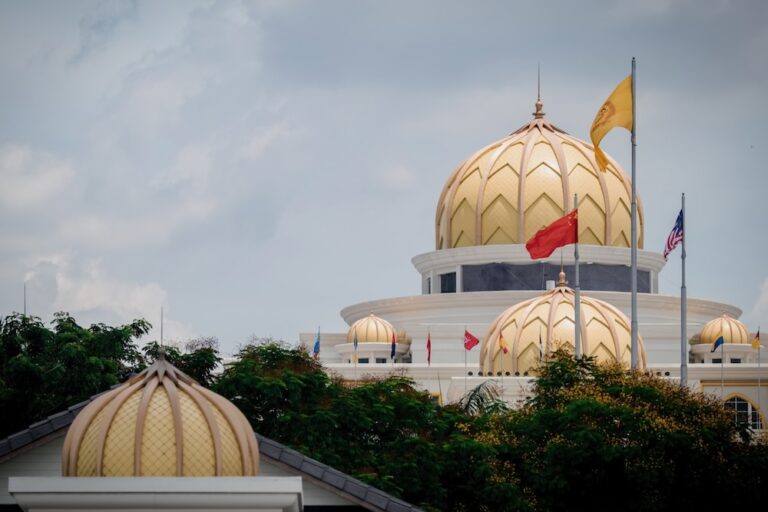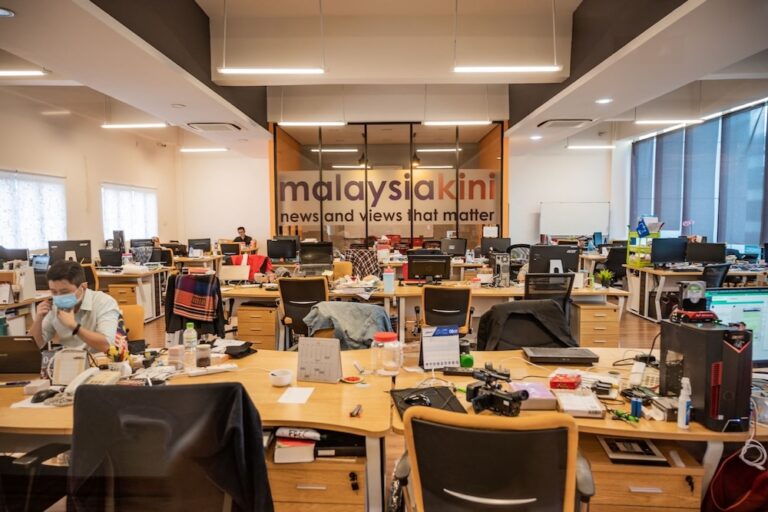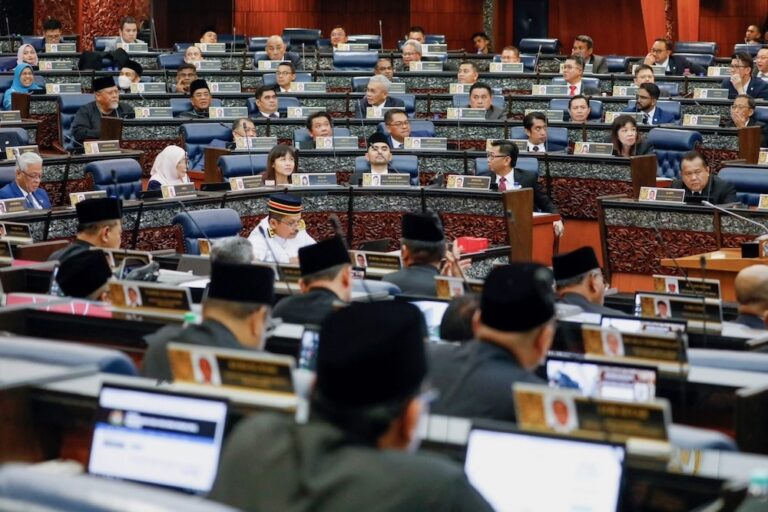Race and religion-based narratives, and hate speech promoting negative stereotypes around sexual orientation and gender have been documented during the election campaign period in Malaysia.
This statement was originally published on cijmalaysia.net on 16 November 2022.
Race-based narratives are dominating political rhetoric on social media in the run up to the general election, the Centre for Independent Journalism (CIJ)’s Social Media Monitoring Initiative has found.
These interim findings, for the period between 20 October to 15 November 2022, have also found that PAS president Abdul Hadi Awang is one of the key amplifiers of divisive, racist, intolerant and hate-based narratives.
Additionally, other PAS politicians, such as the Sik PAS Youth chief, as well as celebrity supporters, like Jamal Abdillah and Zul Huzaimy, have also used inflammatory narratives. They have resorted to fear-triggering Muslim voters with phrases like “going to hell if you vote PH and BN”, inciting violence against “kafir harbi”, and calling for Malays to unite and fight against the Chinese (DAP) and Indians during the reporting period.
Hadi Awang and PAS have also resorted to ‘red-tagging’ in recent weeks, with the continued accusation of DAP being Communist as they are allegedly atheist and promote LGBTIQ practices.
CIJ’s Social Media Monitoring initiative, a first in social media monitoring during an election, is monitoring the severity of hate speech during the election period. The initiative is a partnership with the University of Nottingham Malaysia (UNM), Universiti Sains Malaysia (USM) and Universiti Malaysia Sabah (UMS).
USM communications expert Dr Mahyuddin Ahmad noted that the “Ketuanan Melayu” (Malay Supremacy) narrative tends to go hand-in-hand with anti-Chinese rhetoric. “Race and religion-based hate speech have been weaponised to create fear and antagonism against the Chinese, thus attempting to influence Malay-Muslim voters to vote against Pakatan Harapan if they want their Malay and religious rights not to be eroded and influenced by non-Muslims. It continues to narrow the space for a more inclusive politics in our democracy,” he said.
PAS is not the only party that has resorted to using the race card. Gerakan Tanah Air (GTA), has emphasised that the fate of Malays in Malaysia rests with GTA and they can experience stability and prosperity only when they vote for GTA.
While not at the same level of intensity, Pakatan Harapan has also played the race card by claiming that voting for Perikatan Nasional (PN) will be like having Taliban rule the country.
During this interim period between 20 October and 15 November 2022, a total of 52,012 unique posts were reviewed by monitors. These included comments posted by the accounts being monitored, user-generated comments, and posts that mentioned specific actors.
Race-based narratives topped the chart with 32,066 posts. This was followed by religion with 13,338; gender and comments targeting the LGBTIQ community at 5,161; royalty at 3,968; and comments targeting migrants and refugees being the lowest at 2,246. This was prevalent across the four major platforms monitored as part of this initiative namely, Facebook at 31,969 posts; Twitter at 18,165 posts; TikTok at 1,803 posts; and YouTube at 75 posts.
Out of the combined 45404 posts on race and religion, 7763 included posts with racist and religious slurs and vulgarism; 26 included hostile and dehumanising language; and 4 were posts calling for outright attacks against non-Muslims.
Patriarchal and misogynistic positions on the basis of sexual orientation and gender identity prevail
Apart from race and religion, the monitoring initiative has found in its interim findings that the other main trends around hate speech are negative stereotypes around sexual orientation and gender.
Misogynistic opinions and arguments on the basis of public morality and Islamic values have been weaponised to incite hate speech against the Lesbian, Gay, Bisexual, Transgender, Intersex and Queer (LGBTIQ) community.
Following the 29 October raid by the police and the Federal Territory Islamic Religious Department (JAWI) at a private drag queen Halloween party in Kuala Lumpur, individuals and organisations representing the rights of the LGBTIQ community have been targeted in a seemingly coordinated manner across various platforms such as Facebook, Twitter and TikTok. Activist Numan Afifiquickly became a target online while he was providing updates on the situation. Comments ranged from congratulating the authorities for the raid and related arrests, to calling the LGBTIQ community to be eliminated from our society and being spreaders of viral disease. A post by conservative opinion leader, Rafidah Hanim Mokhtar, thanking the authorities for their action triggered more hate comments.
Pakatan Harapan is also branded as “liberal” and promoting an “LGBTIQ agenda”. PAS politician Siti Zailah reshared an anti-LGBTIQ video by Gerakan Pengundi Sedar, triggering further hate narratives against the community.
Another recurring trend is the resurfacing of an image captured from the video of the alleged sexual encounter between Azmin Ali and Haziq Abdullah Abdul Aziz. This has been used to inflame and propagate anti-LGBTIQ hate speech against Azmin.
Out of 5161 posts on gender and those directed at the LGBTIQ community, 2533 were posts with sexist and gender based derogatory terms, slurs and vulgarism, and 8 reached the level of being hostile and dehumanising.
Unsurprisingly, there were also many sexist remarks about women. A common theme regarding gender that has run through this election cycle is the entrenched sexism, objectification and sexualisation of women candidates. This has the effect of undermining women’s leadership in politics.
Kedah Menteri Besar Muhammad Sanusi Md Nor, in a sexist TikTok video, belittled and undermined women candidates in Sik by saying they were not as competent or capable of leading. This situation was made worse when the media reported that Azmin defended Sanusi’s remarks.
Posts with sexist slurs, derogatory terms and vulgarism are often aimed at women candidates. Use of the term ‘betina’ is often targeted at the DAP, and specifically Hannah Yeoh.
At the same time, Batu independent candidate Nur Fathiah Syazwana Shaharuddin (known as ‘Cleopatra’) was chastised for not covering her ‘aurat’ with a hijab.
According to Professor Zaharom Nain, a media and communications expert from the University of Nottingham Malaysia, “Prevailing sexism and gender-based hate narratives that undermine the role of women in politics erode and limit opportunities and freedom for women to exercise their right to political participation”. The focus on physical attractiveness as an asset, draws the attention away from other skills, expertise or actions, and can be insidious as voters may perceive women candidates as less credible or equipped for public office.”
Xenophobia and doxing against the migrant and refugee communities
Migrants and refugees have also been negatively portrayed in the run-up to the elections. Most of the posts sow hate by claiming that these communities threaten national security and Malaysians’ job security.
Negative portrayals of these communities have been consistent over the years. However, this project has found that such conversations on social media lead to heighthened hate speech at migrant workers and refugees, including instances of doxing and incitement of violence.
For example, a Jabatan Imigresen Malaysia post encouraging the public to use their hotline to report undocumented migrant workers, resulted in a slew of hate comments. This included calls for extermination and instances of doxing where addresses and contact details of migrant workers were revealed on social media.
Xenophobic and anti-migrant sentiment was also evident in an interview, with Ganapatirau when he spoke about migrant workers in Meru Market.
“Exploiting the presence of migrants and refugees, in order to mobilise voter support, by fanning the embers of xenophobia and racism that potentially will lead to hate speech, will place the community at heightened risk of violence, arrest, detention and deportation or refoulement,” said Dr Lee Kuok Tiung, a political scientist from UMS.
By comparison, despite the fact that only 2246 of the overall posts monitored target the migrant and refugee communities, this category has the highest number of posts reaching the severity level of hostile and dehumanising posts at 43l, and incitement and call for violence at 4
CIJ’s executive director, Wathshlah Naidu, stressed that, “With just a few more days before the polling on 19 November, it is of utmost importance that all political actors guard against violent and extremist hate narratives that could potentially impact or influence voter decisions. As the public, we must refrain from falling into the trap laid out before us and not be used as tools to propagate similar hate sentiments”.
Apart from monitoring hate speech on social media, CIJ’s initiative also aims to provide a collective counter-response to hate-based narratives prior to and during GE15. Among others, it has developed resource guides for journalists and voters to respond more effectively to hate speech.
The monitoring initiative continues until 22 November 2022. CIJ will release a final report of the complete monitoring for the duration of 20 October – 20 November 2022 early next year.
Updates of the monitoring and rapid response can be found on CIJ’s #SayNoToHateSpeech website. Report hate speech online using this link.



